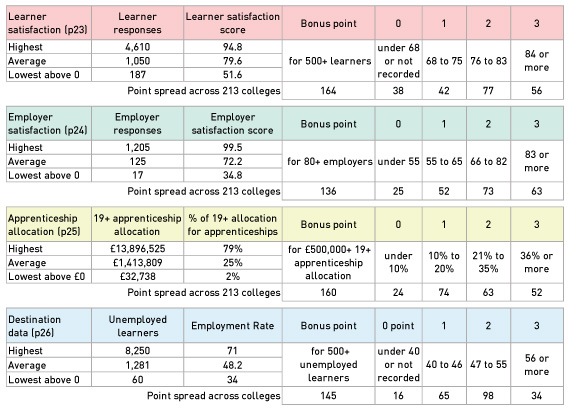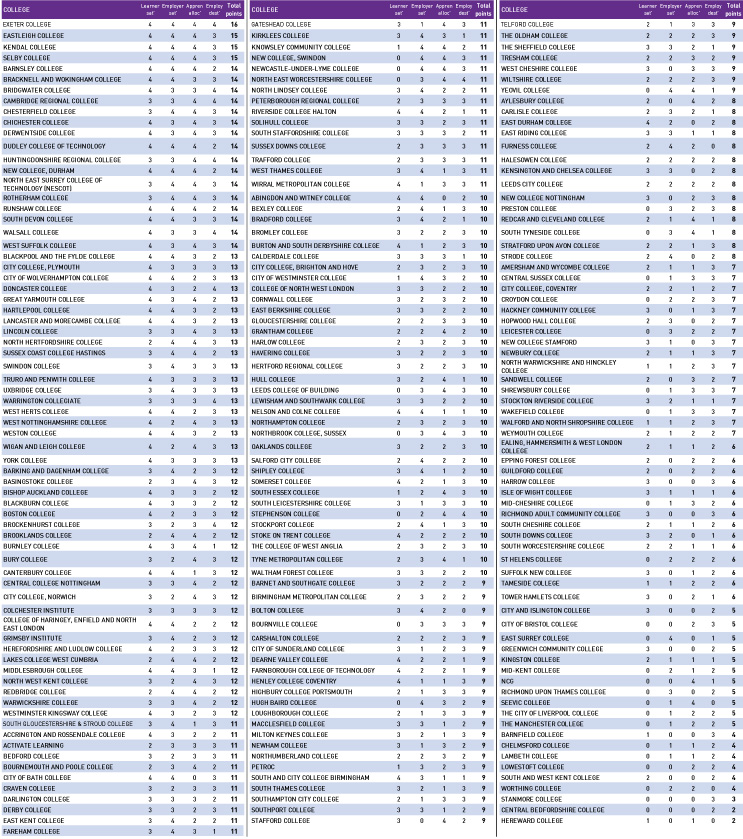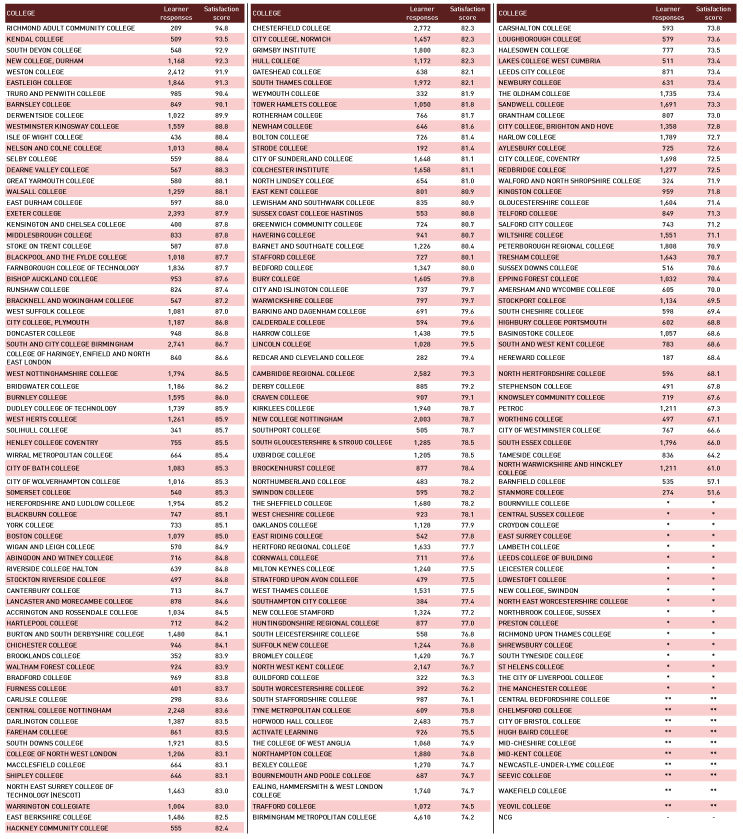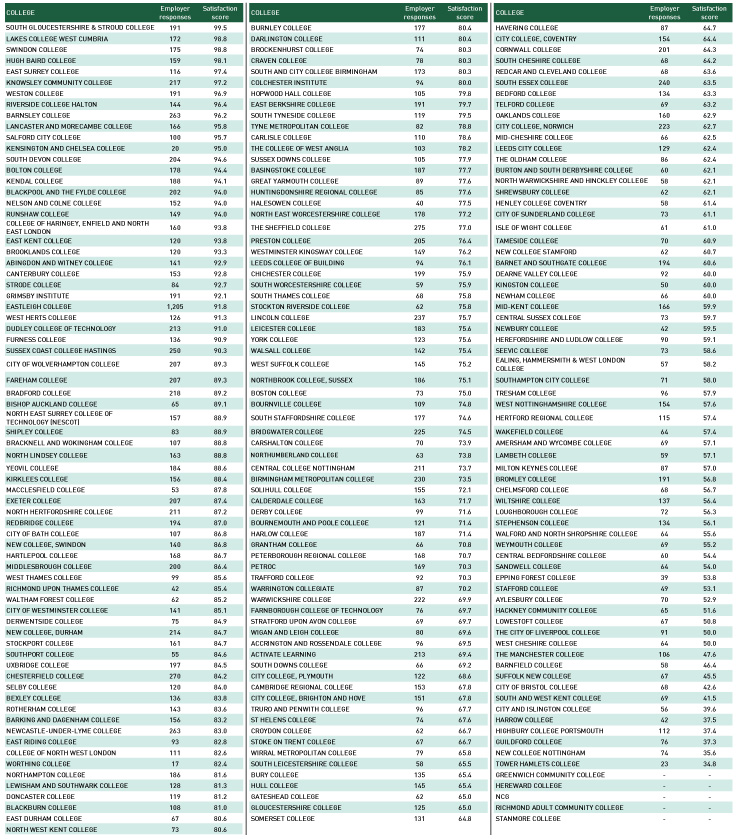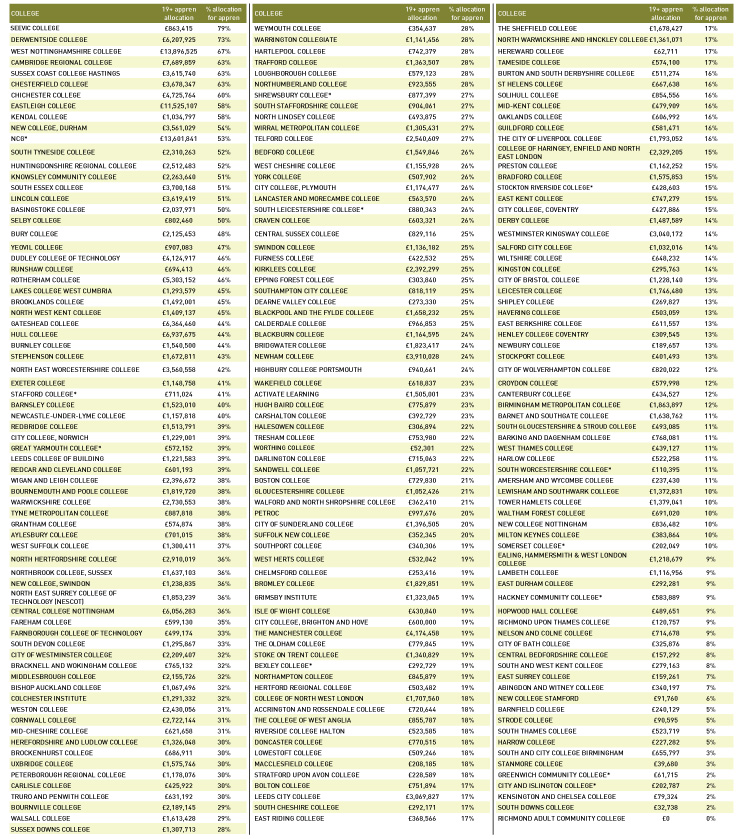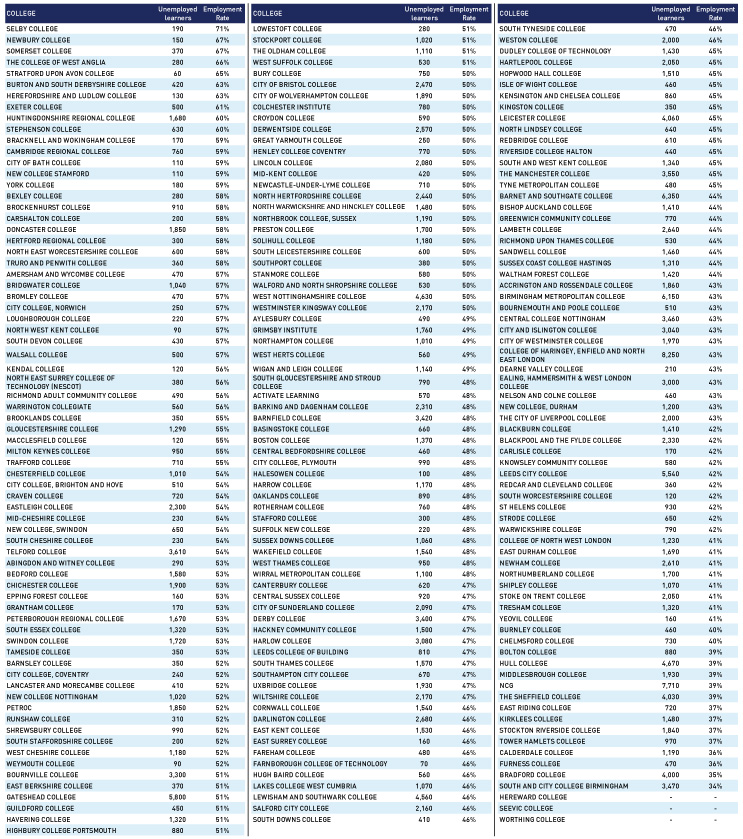There’s nothing wrong with colleges not providing apprenticeships, unless it threatens their future viability, says Ben Verinder
Recent figures on the proportion of apprenticeships delivered by different types of providers appear to paint a miserable picture for colleges.
Once again their share of the market has fallen; they now deliver fewer than one third of all apprenticeships, despite a warning from minister Nick Boles at last year’s AoC conference that they shouldn’t let independent training providers “nick their lunch”.
The Government’s continuing political and financial commitment to the scheme is clear. These new figures are likely to overestimate the college share, masking as they do the scale of subcontracting. So, should college leaders spend their time at this year’s conference shamefaced and penitent?
Perhaps not.
Firstly, the figures mask a much bigger range between colleges and sectors than between independent providers and colleges. General further education colleges are among the largest providers of apprenticeships in the country. Just under half of all construction, engineering and manufacturing apprentices train at college. The issue of proportion is not universal.
Secondly, should we really be surprised that employer-facing independent providers have been more nimble in responding to an employer-facing policy, even one that’s been around for a while? The heritage, brands, stakeholder expectations, cultures, systems and product ranges delivered by colleges are markedly more diverse and complex than their private sector counterparts. They do a lot more things besides.
It’s not a good idea to let someone nick your lunch if it’s the only square meal you’ll be getting
Thirdly, the suggestion that there is something intrinsically wrong (morally or as a point of governance) in not providing apprenticeships doesn’t make much sense to me. If a college decides that it does not have the capacity or culture to deliver apprenticeships, then shouldn’t we be celebrating, on behalf of students, a decision to eschew poor-quality education?
However, things start to get tricky when we apply a thin-end-of-the-wedge philosophy to the issue. If, because other funding streams are shallow, failure to provide apprenticeships poses a threat to the viability of an institution and its ability to serve a community in the future, then we have a governance problem. It’s not a good idea to let someone nick your lunch if it’s the only square meal you’re getting today.
If dipping out of apprenticeships means that students in a particular area who need and want to access an apprenticeship cannot get one, then we have a supply problem. And if too few colleges nationally are taking up the apprenticeship challenge, then we also have a reputation problem – failuring to positively respond to a Government priority tends to limit a sector’s ability to influence others.
Despite all this, it seems to me that focusing too much on the data here misses the point. It’s not apprenticeship numbers that matter per se, but whether they reflect a broader issue regarding employer engagement in the college sector.
On the one hand, it’s obviously oversimplistic to say that colleges have a problem in this regard. From Boots to Balfour Beatty, Pinewood to PWC, there are big-brand advocates of college provision across the country. In quantitative terms, the average college does business with around 600 employers. Our research among employers on behalf of FE clients regularly shines a light on college excellence.
On the other hand, too often we encounter college/employer relationships that are departmental rather than corporate, and so wither when a well-connected lecturer or head of department moves on. In too many cases we discover business relationship management systems that are used by a small pocket of staff and the broader intelligence and interactions go unrecorded. Too frequently we see college candidate selection, customer service or communication that isn’t up to scratch.
Addressing these issues requires singular focus. The question for some colleges, it seems, is whether their intrinsic complexity makes that focus unattainable without a radical change – one that may not sit at all well with its broader set of stakeholders, in particular its current members of staff. Sometimes lunch is just too expensive.
Ben Verinder is managing director of research agency Chalkstream


